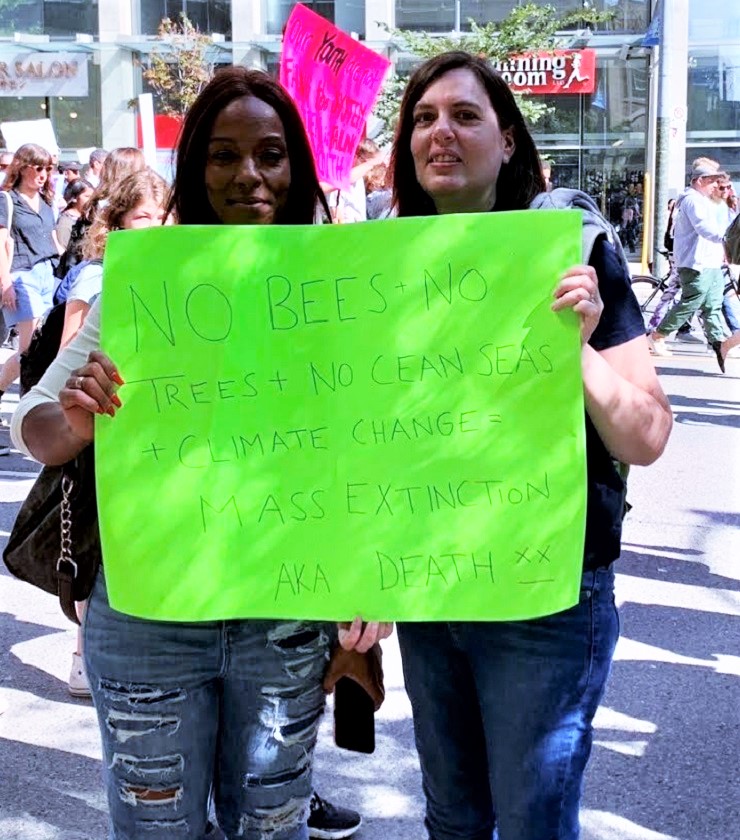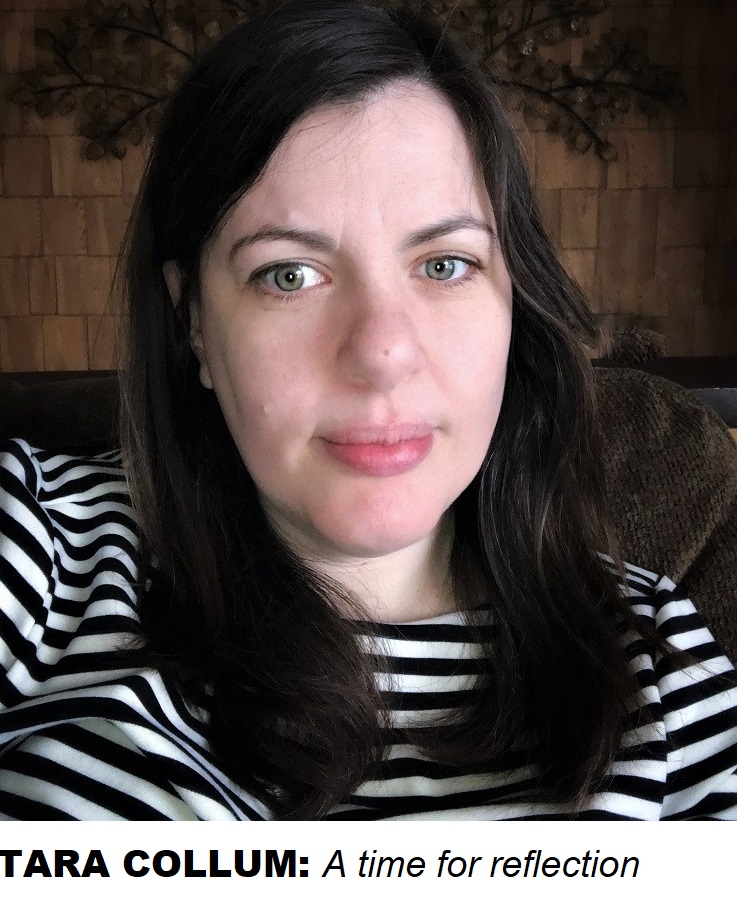AS FATE OF HUMANITY HANGS IN THE BALANCE, CLIMATE CONFERENCE COP OUT
TARA COLLUM | Contributing columnist
A few years ago I joined a crowd of 15,000 people in Toronto to participate in a climate strike.
Al Gore first helped put “global warming” on the world’s radar with his early 2000s documentary An Inconvenient Truth, and the cause is now championed famously by a teenager from Sweden, Greta Thunberg. She started protests known as “Fridays for Future” that caught on with youth around the world.
The phrase global warming has since become outdated, replaced with climate change, and the more urgent climate crisis and climate emergency.
At the strike in the Toronto, there was earnestness and optimism and a competing sense of doom. Some students marched defeated with profanity-laced signs. They were angry and scared about the fate of a planet dying at our hands. It’s a death we might be alive to witness. A forced to watch its own extinction.
Adding to the sense of cynicism is that the climate strike is the sort of demonstration magnanimously allowed by authorities, with traffic cleared for its path. Unlike the G7 summit protests where marchers are kettled by police, tear gassed, and have a lawyer’s phone number Sharpied on their arms in case of arrest.
This year’s United Nations Climate Change conference — also known as COP 26 — in Glasgow, Scotland, went into overtime today as world leaders struggled to agree on their promises and goals for how to best move forward on this cataclysmic issue.
As the fate of humanity seems to hang in the balance, climate scientists and children are developing pre-traumatic stress syndrome.
Understandably with the dire predictions of soaring temperatures the human body can’t withstand, climate refugees from sinking and disappearing countries are put permanently under water from rising sea levels — and more frequent and devastating natural disasters.
Some of these events we are witnessing with our own eyes, and it is getting harder to deny the effects of changes in the atmosphere, from freak snow storms in Texas, and punishing heatwaves in British Columbia that are caused by new and terrifying weather events like heat domes.
But of course, there is disagreement that blocks the urgency of needed action. The science is doubted. It’s maintained stridently that humans can’t cause such drastic changes to the earth’s temperature.

It doesn’t help that we live in such hyperbolic times. Remember for instance when a band would release a new album and it was simply their job? And we’d know it when we heard a new song on the radio, or watched a video debut on Much Music? It wasn’t billed as earth shattering, or world-changing, a triumphant come back, or a redefinition of a genre.
There is a lot of hype. Events aren’t just events, but the event of the century.
Things tend to get tuned out if they are too alarmist.
Like the Trooper song says: “We’re here for a good time, not a long time. So have a good time, the sun can’t shine everyday.”
While there is the underlining fear that by the time we get our act together, it will be too late for us and the planet, a little bit of anxiety can be motivating, but too much is paralyzing. We need to have hope.
It’s the way of the world that others can’t, won’t or are unable to do their part, but that doesn’t make things impossible.
We can all do something, and there is a lot we do already, from recycling and composting to bringing reusable bags to the grocery store.
We can all do our part. The world shouldn’t have to be in peril for us to take care of it, it’s our home.
We can challenge ourselves to lower our household waste, make our homes more energy efficient, forgo air-conditioning, invest in public transit, and educate ourselves about how to decrease our carbon footprint.
For more information on how to act locally, visit Climate Action Muskoka’s website at https://www.climateactionmuskoka.org/


November 13, 2021 @ 5:36 pm
Like Greta Thunberg, and others, Tara Collum seems to have her finger on the pulse of climate change. To those who do not or will not take the climate today, and into the future seriously, I say “You may not care about anything that does not affect you personally today. But think of the next 3 to 4 generations will remember you had a chance to save our planet. And you thumbed your nose at helping future generations. Your legacy will go down in history. You could have helped save the planet for future generations. But instead, selfishly, you chose to only think of yourself, and hang the rest of future generations.
November 13, 2021 @ 5:48 pm
Beautiful!